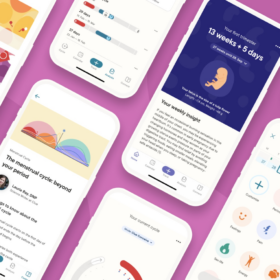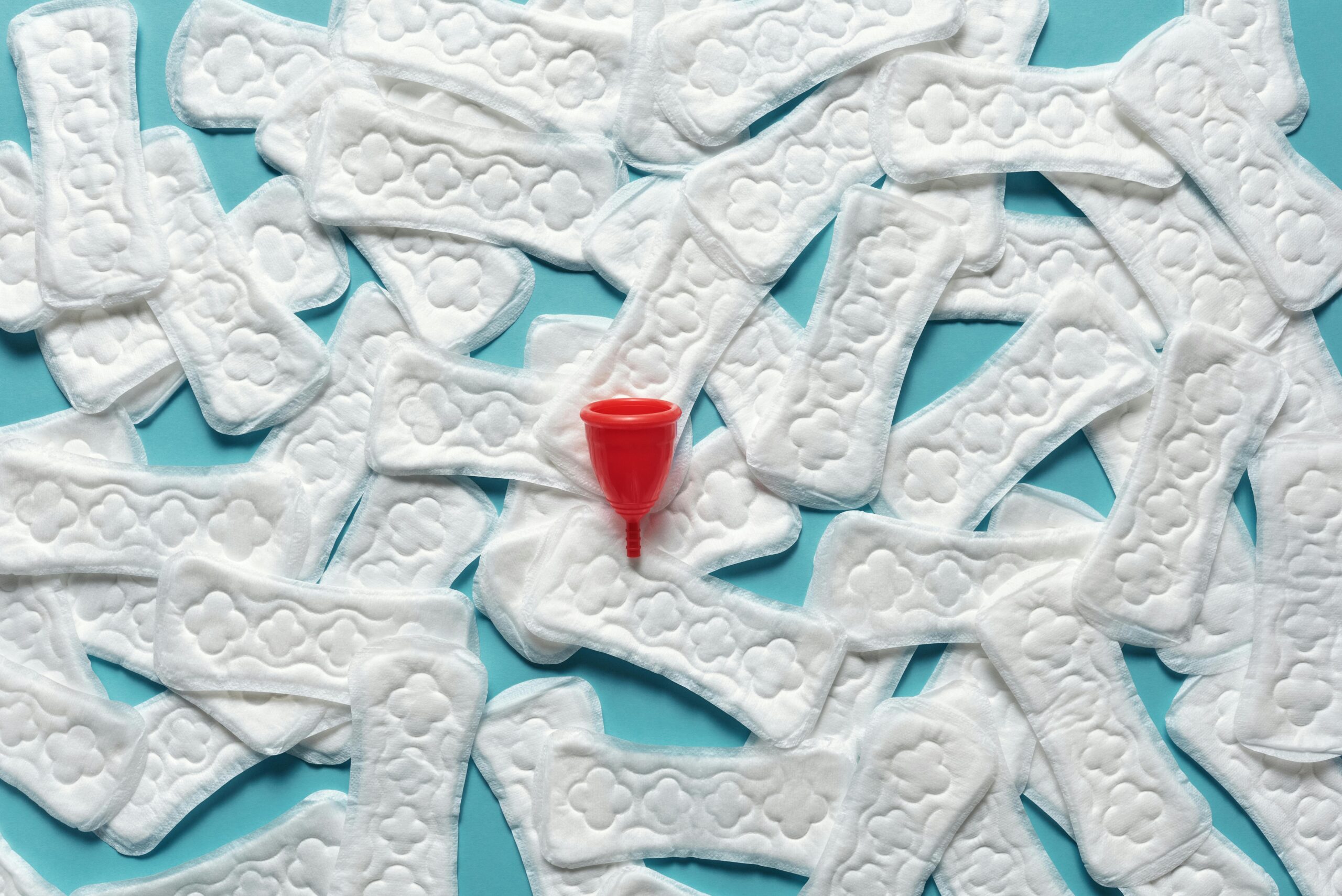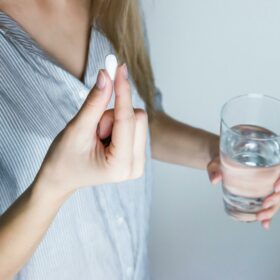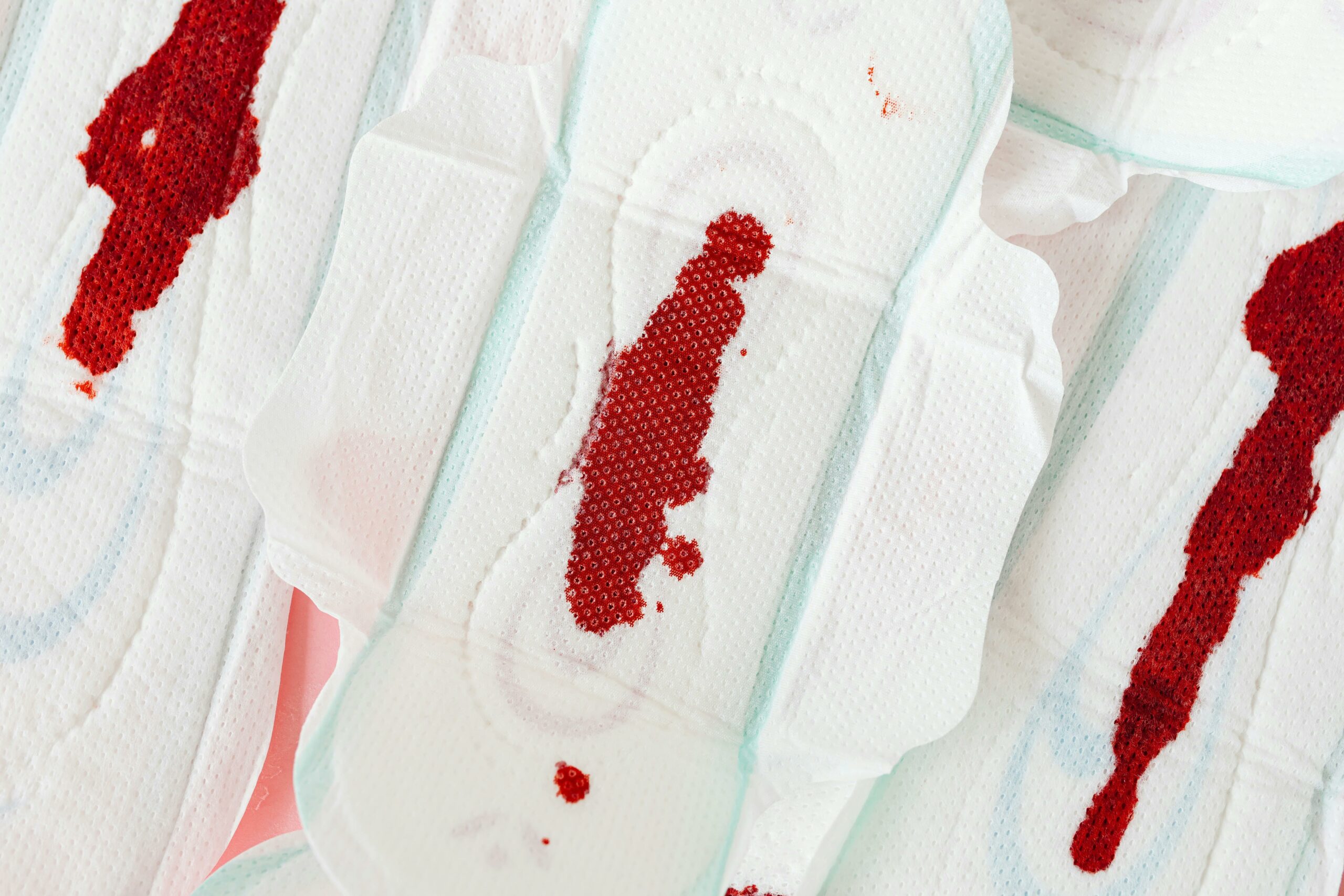
Thrush before or during your period: how to treat
In this article
What's the lowdown?
The hormones that trigger the beginning of your period can cause an imbalance in the bacteria and yeast in your vagina, making you more susceptible to thrush
Menstrual blood can alter the natural pH of your vagina, allowing thrush to develop more easily
The use of sanitary products can irritate the vagina and vulva, making you more likely to develop thrush
You should not use vaginal pessaries during your period
Periods are often inconvenient and uncomfortable, and can come with an annoying mix of symptoms, like bloating, mood swings and cramps. So what we definitely don’t need is a case of thrush to deal with on top of it all.
But some people find that they’re actually more prone to developing thrush in the days before, during and after their period – and there’s a good reason for that. Let’s dive into why thrush is more common around your time of the month and what you can do to treat it.
What are the symptoms of thrush?
Symptoms of thrush include:
- Unusual, white, cottage-cheese-like discharge
- Burning or pain while urinating
- Pain, itching, redness or swelling of your vulva
- Feeling pain or stinging during sex
Some of the symptoms of thrush are also the symptoms of common STIs; in this article we explain how you can tell the difference and what your treatment options are.
Why do I get thrush before my period?
In order to explain why thrush is more common before your period, we first have to understand what thrush is, and why it occurs in the first place.
Thrush is a fungal infection that thrives in warm, damp places, essentially making the vagina its ideal habitat. It’s caused by a particular fungus called Candida Albicans, which is present naturally in the vagina and doesn’t usually cause any problems. Thrush occurs when there’s an overgrowth of Candida in the vagina, which results in those irritating symptoms many of us recognise: itching, soreness and discharge.
Your vagina is a balanced environment of bacteria and yeast, a vital combination that keeps it healthy and functioning as it should. The reproductive hormones in your body regulate your menstrual cycle; their levels ebb and flow to trigger different events, like the beginning of your period. When your hormones give the signal for the sequence of events before your period begins, the change in levels of oestrogen can also cause an imbalance in the delicate levels of bacteria and yeast in your vagina. Enter thrush, which research has shown often appears just before our periods. Similarly, combined contraception containing oestrogen like the pill, patch and vaginal ring as well as hormone replacement therapy for menopausal symptoms can be associated with thrush.
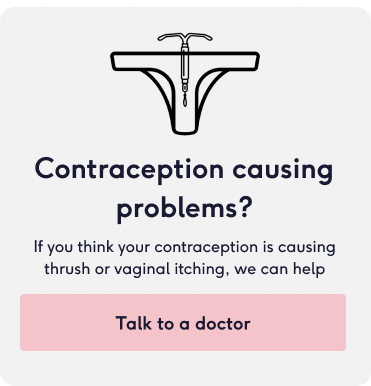
Why do I get thrush during my period?
Like we said above, the hormones that trigger your period can also cause an imbalance in the bacteria and yeast levels in your vagina. The sanitary products you use during your period can also irritate or damage the delicate skin of the vagina or vulva, which can make you more susceptible to infections like thrush.
Some people also wash themselves more often or more thoroughly during their period. Your vagina is self-cleaning, and harsh soaps or excess washing can upset the delicate balance of yeast and bacteria, making it easier for a thrush infection to develop. The precise balance of bacteria and yeast in your vagina is important; the yeast stops the bacteria from growing out of control, and the bacteria stops the yeast from doing the same. Cleaning yourself too frequently could be washing away the good bacteria that keep fungal infections in check.
You might also have heard about the pH of your vagina playing a role in its overall health and it’s true, it does. Your vagina naturally has quite an acidic (low) pH, which keeps chances of infection low. Your menstrual blood, on the other hand, has a pH of about 7.4, so can make the pH of your vagina more alkaline (higher) and allow for an easier overgrowth of thrush-causing yeast.
This is why intimate washes or douches are not good for you as they actually disrupt the balance in your vaginal ecosystem.
Why do I keep getting thrush after my period?
Thrush that develops after your period could be occurring due to the same reasons we mentioned above; hormonal changes around our periods as well as changes in our behaviour – like washing, or using sanitary products – and pH alterations caused by menstrual blood can essentially disrupt the vagina’s normal balance and make thrush more likely to occur.
Can thrush delay or stop a period?
The most simple answer is no, thrush itself shouldn’t delay or stop your period. What can happen, however, is for any hormonal changes that may have caused the thrush to occur in the first place to also affect your menstrual cycle. Additionally, being unwell, stressed or run down can increase your likelihood of having thrush and can also affect your period.
That being said, if your period is significantly late (more than a few days) you should take the usual precautions and get yourself a pregnancy test if you’re sexually active. Get a Clearblue test on Amazon (affiliate link). You can also use our missed pill calculator tool if you are unsure:
If your periods are consistently irregular or you’re worried then speak to your doctor or nurse.
You’re also more likely to get thrush if you’re on antibiotics, as they can kill off the good bacteria in your vagina, allowing Candida to grow out of control. Antibiotic use has been associated with periods arriving earlier or later than expected, but this is actually most likely due to other factors, like the stress of being unwell. Other factors that can increase your risk of thrush include diabetes, taking steroids, hypothyroidism (low thyroid hormone levels) and having a condition or taking medicines that suppress your immune system.
How to treat thrush when on your period
The most common treatment for thrush is the clotrimazole pessary or cream, which you either insert into the vaginal canal or apply locally to the area. This is usually the first treatment option your healthcare professional will offer you.There is a systemic alternative which is taken orally and is effective at treating the infection. It’s usually just one tablet taken once – hurrah! – unless advised differently by your doctor for recurrent thrush. You may experience side effects when taking Fluconazole, the most common being nausea and diarrhoea.
Avoid the use of unnecessary and perfumed products around the vulva, you can use a simple moisturiser on the outside of the vulva to wash with if you need. Oral tablets, pessaries and creams are all widely available over the counter from pharmacies, but there are some cases in which a particular treatment option may not be right for you.
If you’re pregnant, you shouldn’t take oral antifungal medications. Those who are pregnant are recommended a medication called Clotrimazole either in the form of a pessary (a tablet that is inserted into the vagina) or a cream that is applied either internally or externally. Buy from Amazon (affiliate link!)
If you’re not pregnant you can use Clotrimazole alongside Fluconazole, in its cream or pessary form. If you are using a pessary, do not use any vaginal products (like tampons or menstrual cups) at the same time.
Clotrimazole comes with potential side effects, like any medication. These include swelling, pain or discomfort in or around the vagina, lower abdomen or pelvic pain, vaginal bleeding and stinging or burning after use. Most of the time, these side effects aren’t a problem, and should clear up soon after you finish your treatment. If you are worried, though, be sure to speak to your doctor.
ScreenMe is an innovative test of your vaginal microbiome. ScreenMe is the only UK-based test that can screen for every single bacteria or yeast within your vaginal microbiome. You can always learn more about ScreenMe on our website!If you’re unsure which thrush treatment is right for you, need advice around recurring thrush or even whether you have thrush in the first place – we have a team of wonderful doctors who can go through things with you, too.
Can you use a thrush pessary while on period?
Treating thrush on your period slightly differs. You should avoid using antifungal pessaries as it might not stay in your vagina long enough to be effective. It is best to treat your thrush with oral antifungals instead.
Can I use clotrimazole while on my period?
You cannot use the clotrimazole pessary during your period, you should wait for it to end before inserting it. However, you can use the clotrimazole cream to the local areas of the vulva during your period if you wish.
It is recommended to avoid using tampons or menstrual cups during your period if you have thrush.
Treating thrush at home
There are no at-home thrush remedies that we recommend. You might have heard that salt water rinses or applying yoghurt to the area might cause some relief, but these are not medically validated and might do more harm than good.
Thrush can actually self-resolve in a few days so you might not need any medications.
Can the contraceptive pill cause thrush?
As we learnt above, changes to the hormonal balance in the body increases the risk of developing thrush. So as using the contraceptive pill changes the levels of oestrogen and progesterone in the body, you are at higher risk of developing thrush. However, the contraceptive does not directly cause thrush.
Recurring thrush every month
The last thing we need is an itching vagina every month. Some people only get thrush once in their life while others get it repeatedly. If you get 4 or more episodes of thrush a year, you could have chronic thrush and need more long-term aggressive treatment.
Make sure to get this checked at your GP or closest sexual health clinic.
Our medical review process
This article has been medically reviewed for factual and up to date information by a Lowdown doctor.



